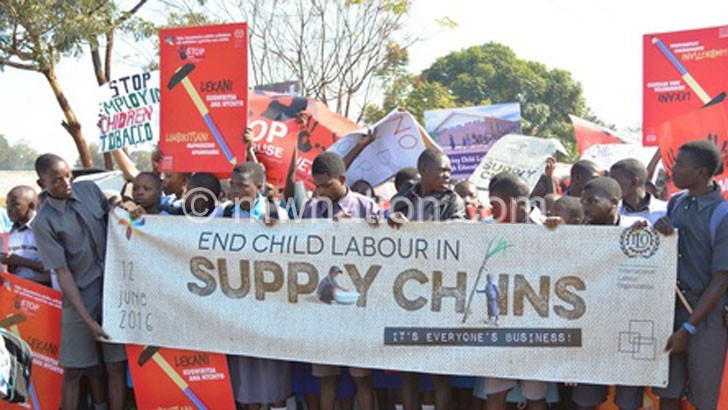Poverty, poor funding derails child labour fight
The launch of a strategic planning we project on Accelerating Action for the Elimination Labour in Supply Chains in Africa organised by the International Labour Organisation (ILO) in Lilongwe on Tuesday revealed that the fight against child labour practices in the country is stagnating.
Minister of Labour, Youth, Sports and Manpower Development Grace Chiumia, who was guest of honour of the three-day conference, conceded that the current 38 percent prevalence rate is one of the highest in the world.

She said she is confident that the Accelerating Action for Elimination of Child Labour in Supply Chains in Africa, which covers Malawi, Cote d’Ivoire, Egypt, Mali, Nigeria and Uganda, will help deal with the challenge.
The minister said despite political will from government to end child labour, high poverty levels and poor government funding of district labour officers is limiting the work.
Said Chiumia: “I am pleased to note that the project has a strong component on capacity building. This is one area where stakeholders and actors face serious challenges. This gives me confidence that this project will have a huge impact in promoting sustainability of our efforts. We should be aiming at being among the best beneficiary countries.”
The minister said her ministry invited a wide range of stakeholders and actors, including consumer rights and ethical bodies, private sector organisations and civil society, to enhance sustainability.
ILO country director for Zambia, Malawi and Mozambique, George Okutho, said child labour is fuelled by poverty, hence families use their children to earn a living.
“The lasting solution is ensuring the school system is able to retain children from primary to secondary. We need to have an education policy system that will require children to attend and remain in school. Because if children drop out of school there is no alternative as they will go back to working,” he said.
Okutho says the other solution is to improve livelihoods of families so that they do not involve their children in labour activities that affect their physical growth.





